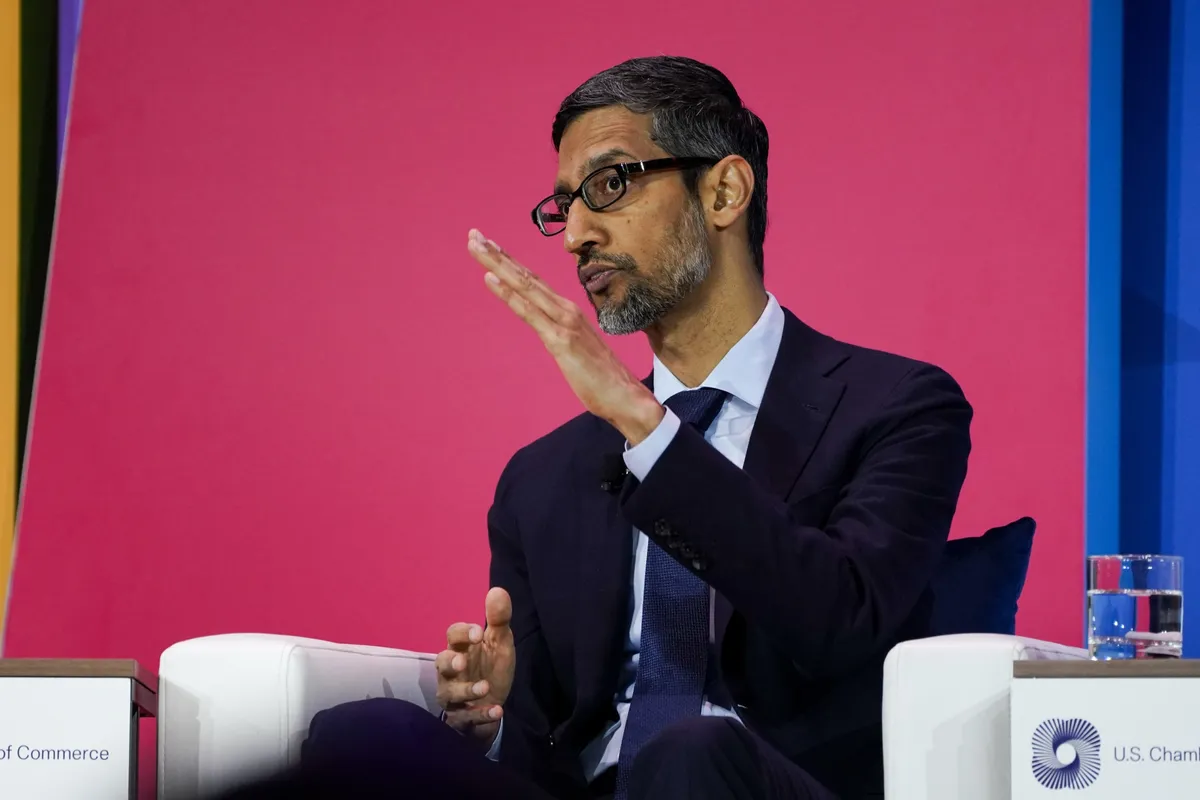Google now uses AI to write 25% of its new code — Alphabet CEO Sundar Pichai underlines the company's role in the AI industry amidst strong Q3 24 financials
Will AI completely displace entry-level software engineers?

Get Tom's Hardware's best news and in-depth reviews, straight to your inbox.
You are now subscribed
Your newsletter sign-up was successful
In Alphabet's recent earning calls, Sundar Pichai said that Google relies on Artificial Intelligence to generate a quarter of its new code. The tech giant, highlighting its strong financials last quarter, attached significant importance to how Google is continuously redefining user experience - while depending on AI internally at the same time. Likewise, on the financial end, the company is seeing an applaudable turnaround - with a 34% increase in net income year over year.
Using AI to write code is nothing new. Let's be honest; we've all used AI at least once to wrap up that one specific assignment or grasp a new concept. However, the fact that an industry leader like Google writes 25% of its new code is both intriguing and unsettling at the same time. Sundar Pichai says, "Today, more than a quarter of all new code at Google is generated by AI, then reviewed and accepted by engineers." Of course, AI is not self-aware, at least not yet, and every line of code has to be monitored by senior developers. But this poses a real threat to up-and-coming programmers.
Google is also revamping how we search things on the internet through AI. Meet AI Overviews, which accumulate results online and offer a summarized overview. “In Search, our new AI features are expanding what people can search for and how they search for it." While, in theory, this is a step in the right direction, the model tends to slip up occasionally. We should also highlight that Google could be forced to split up in light of an anti-trust lawsuit by the Department of Justice pinning Google's monopoly in the Search Engine market.
Overall, Alphabet's financials are solid as the recent influx in AI services to mainstream customers and a surge in YouTube Ad revenue landed the giant a respectable 15% increase in revenue at $88.2 billion compared to last year. Interestingly, the operating income for Google Services is up by 28%, even when you factor in the costs of running those AI models. Google Cloud, offering cloud computing and generative AI solutions, sees a substantial 7.3x uplift in the operating income at $1.94 Billion.
All things considered, it appears that Google's more AI-centric approach is working. While threats about potential job displacements are still looming, Google is doing all it can to appease shareholders and maintain its status in the market.
Get Tom's Hardware's best news and in-depth reviews, straight to your inbox.

Hassam Nasir is a die-hard hardware enthusiast with years of experience as a tech editor and writer, focusing on detailed CPU comparisons and general hardware news. When he’s not working, you’ll find him bending tubes for his ever-evolving custom water-loop gaming rig or benchmarking the latest CPUs and GPUs just for fun.
-
why_wolf I have to wonder how much of that is "new" code and how much is just maintenance codeReply -
LibertyWell Google whistleblower: Google programs its users like robots:Reply
https://rumble.com/v2blga4-whistleblower-reveals-how-google-seeks-to-program-its-users-as-if-they-were.html
This company should be splintered asunder into a million pieces. -
JamesJones44 Reply
I had the same thought. Without context it's hard to read into what 25% means of new development means. For some projects we maintain dependabot probably does 50+% of the new code development and the PRs are reviewed by the code owners, but that's not the same as new feature/bug fix development.why_wolf said:I have to wonder how much of that is "new" code and how much is just maintenance code -
sygreenblum AI is good for boiler plate and specific repetitive tasks like database API's but using it for complex tasks is like adding a bloated sieve to your code.Reply -
Otto Levin 25% sounds impressive :fille:I wonder how much is routine code vs. creative development. It could free up engineers to focus on high-level innovation, but there’s a risk for entry-level programmers if too much is automated.Reply